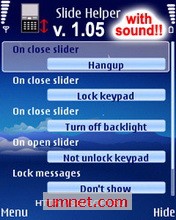NEW Open C C ++ PIPS SDL Library symbian app free download

Category - systemtools
Resolution - multi
Type - Symbian s60v3
Size - 1452 KB
Rating - 2/5 from 70 ratings
| Rate this app: | |
| 2566 downloads | |
Description:
Ver 1.6, for S60v3 S60v5 SymbianOS 9.x
Without PIPS and Open C, Symbian OS already has some support for POSIX in that it provides an implementation of the C Standard Library (STDLIB). I have previously ported large complex multi-threaded Linux code to Symbian using STDLIB and extra Symbian functions for memory handling, threading and sockets. According to the PIPS press release, functions will now be packaged up into industry standard libraries - libc, libm, libpthread and libdl and tightly integrated with Symbian OS to optimise performance and memory usage. Hence, PIPS is can be thought of as an improved STDLIB. And These will effectively required to port a large number of existing Linux applications.
So what does PIPS add? According to the press release…
  "… it is now realistic and desirable to migrate desktop and server code onto mobile devices, opening up exciting possibilities and attracting differently skilled developers to the Symbian ecosystem."
The interesting bit for me is that PIPS will also allow developers to create new non-UI code (engine) code without having to think about Symbian idioms.Symbian Partners and Licensees (eg Nokia and Sony Ericsson) will also be able to take advantage of PIPS. If they started developing new modules this way (or even re-engineer old ones) they could re-use these within existing or future Linux (or even other OS) based platforms.
Ver 1.6, for S60v3 S60v5 SymbianOS 9.x
Without PIPS and Open C, Symbian OS already has some support for POSIX in that it provides an implementation of the C Standard Library (STDLIB). I have previously ported large complex multi-threaded Linux code to Symbian using STDLIB and extra Symbian functions for memory handling, threading and sockets. According to the PIPS press release, functions will now be packaged up into industry standard libraries - libc, libm, libpthread and libdl and tightly integrated with Symbian OS to optimise performance and memory usage. Hence, PIPS is can be thought of as an improved STDLIB. And These will effectively required to port a large number of existing Linux applications.
So what does PIPS add? According to the press release…
  "… it is now realistic and desirable to migrate desktop and server code onto mobile devices, opening up exciting possibilities and attracting differently skilled developers to the Symbian ecosystem."
The interesting bit for me is that PIPS will also allow developers to create new non-UI code (engine) code without having to think about Symbian idioms.Symbian Partners and Licensees (eg Nokia and Sony Ericsson) will also be able to take advantage of PIPS. If they started developing new modules this way (or even re-engineer old ones) they could re-use these within existing or future Linux (or even other OS) based platforms.

 Choose mobile
Choose mobile Login
Login Signup
Signup







 Download directly on your phone by scanning this QR code
Download directly on your phone by scanning this QR code